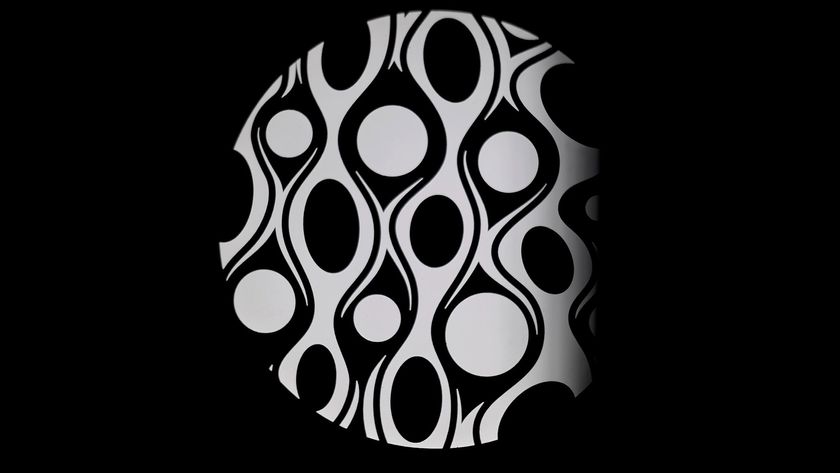At the San Francisco Museum of Modern Art (SFMOMA), renowned sound artist Bill Fontana has added another dimension to the turret-skylight atrium atop the building by enveloping thespace in a dynamic, interactive auditory experience. Entitled Sonic Shadows, Fontana’s work employs eight Meyer Sound MM-4XP miniature self-powered loudspeakers—working in conjunction with four moving ultrasonic emitters—to reproduce sounds generated organically by vibrations inside the building.
“What Bill Fontana has achieved is a truly hybrid and reactive sculpture of sound in time,” says Rudolf Frieling, SFMOMA curator of media arts. “Crossing the bridge on the fifth floor activates a complex work in which the invisible structures of the architecture play as large a role as the random movements of visitors. It is a unique SFMOMA sound.”
Nearly invisible, the MM-4XP loudspeakers are nested discreetly inside eight of the 254 small ventilation “portholes” across one side of the curving wall. To generate source sounds, Fontana placed ten vibration sensors (accelerometers) on the building’s rooftop heating and cooling pipes, as well as on the truss pedestrian bridge across the open atrium and on a nearby wooden floor.
“What I’m creating here is a dimensional shift using sound,” explains Fontana. “The MM-4XPs are fading in and out in waves, filling the space, but with the signals slightly offset in time so it creates the illusion of the space expanding into a larger volume.”
For Fontana, the MM-4XP was the clear choice when considering his requirement for wide bandwidth reproduction and the need to conceal the unit inside foot-wide openings. “A lot of companies make small speakers, but none have anywhere near the sound quality of the MM-4XP,” Fontana says.
The MM-4XP loudspeakers work in conjunction with four ultrasonic emitters, each mounted on pan-tilt heads of the type normally used for moveable stage lighting. The 24-inch-square emitters modulate ultrasonic signals to create limited bandwidth, extremely directional sounds that stream straight out like water from a high-pressure hose. Programmed to be in constant motion with assistance from Shane Myrbeck of Arup Acoustics, the emitters usually “splash” off surrounding walls but sometimes pass across visitors on the pedestrian bridge with startling effect.
“The ultrasonic emitters create interesting spatial sensations,” observes Fontana, “but when the Meyers come in, they expand the space with a depth and richness the emitters don’t have.”
Fontana has used Meyer Sound loudspeakers in nearly all of his works since 1985, often concealing his sound sources by using miniature speakers such as the MM-4XP, or by projecting sounds from a distance using the powerful, highly directional SB-1 sound beam. Hisclose relationship with company founders Helen and John Meyer provided the original impetus for developing the company’s series of miniature loudspeakers. In 1999, Fontana’s requirement for very small, high quality loudspeakers in a work commissioned for the Lyon, France tramway system was fulfilled by the first prototypes of the MM-4.
Organized by Rudolf Frieling, Sonic Shadows debuted on November 20 and will run through October 16, 2011.









